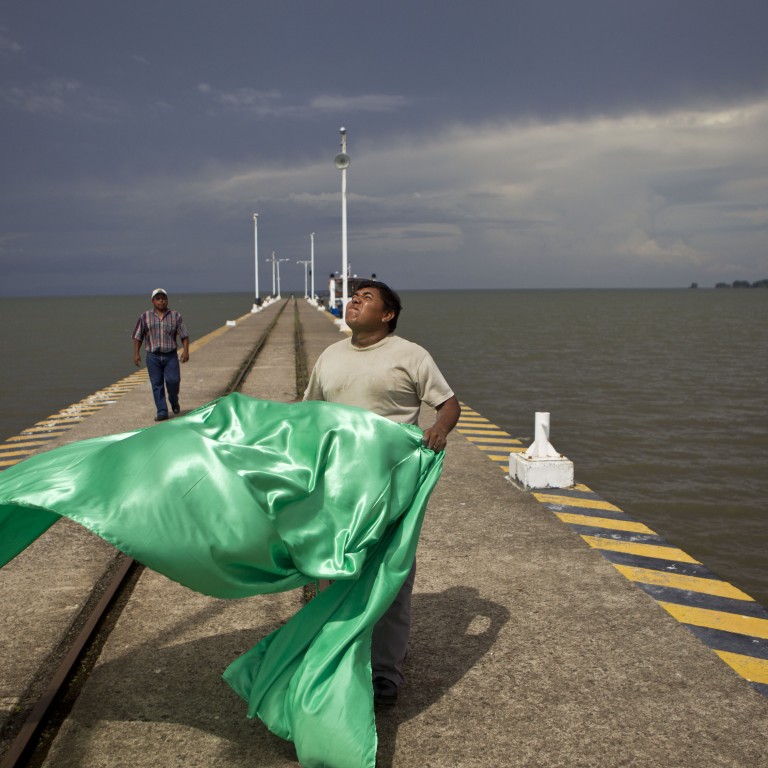
Canal deal cripples Nicaraguan sovereignty, again: activist
History repeats itself with the signing of the Ortega-Wang Jing Treaty, which alienates Nicaraguan sovereignty to a private company for a century, thus turning Nicaraguans into pawns, yet again, for big interest and the super powerful.
“The independence, sovereignty and national self-determination are inalienable rights of the people and foundations of the Nicaraguan nation. Any foreign interference in the internal affairs of Nicaragua or any attempt to undermine those rights threatens the life of the people. It is the duty of all Nicaraguans to preserve and defend these rights.”
-Article 1 of Nicaragua's constitution
The people of Nicaragua have had, throughout its history, the legitimate desire to take advantage of prospects offered by its geography, especially to construct an inter-oceanic canal, which in turn would mean economic transformation and national development, as well as a source of well-being for all.
These just aspirations and illusions of wealth and progress of the Nicaraguan people have been repeatedly manipulated and misused, resulting in a sale of the Nicaraguan dream to secret back-door negotiations to feed selfish claims of excessive power and ambition, and what is worse, the delivery to unknown individuals with unknown intentions of our national sovereignty, as it occurred before - with the Bryan-Chamorro Treaty of 1914, when a substantial part of our territory was sold to the United States for US$3 million for the promise of a canal.
History repeats itself with the signing of the Ortega-Wang Jing Treaty, which alienates Nicaraguan sovereignty to a private company for a century, thus turning Nicaraguans into pawns, yet again, for big interest and the super powerful.
The "treaty" was negotiated for the price of US$40 billion by Nicaraguan President Daniel Ortega in secret, without any transparency, national consensus, due process of a open public bid established by the Nicaraguan procurement legislature. It grants HKND Group chairman Wang Jing, who has no previous experience managing this type of project, absolute rights of construction and operation of an inter-oceanic channel for a century, a railway line from coast to coast, ports, airports, pipelines and commercial zones and many other works, for the paltry sum of US$10 million annually. These absolute rights over Nicaragua can be passed on to any third party, whether a state or another company, in whole or in parts, if Wang so chooses, without the need for public approval.
The Ortega administration has for a century sold the future of coming generations of Nicaraguans who will be born into a nation without sovereignty because it sold all of its rights to a company based in Hong Kong. HKND, newly registered in Grand Cayman, a tax haven in the Caribbean, will have unlimited and unrestricted concession over all of Nicaraguans’ land, maritime, rivers and lakes, air and natural resources. In other words, the Ortega-Jing Treaty gives unlimited access to the whole of the Nicaraguan territory to Wang because the path of the canal has not yet been determined. Not to mention that the Ortega administration has conceded all judicial, labour, fiscal and financial rights and sovereignty of the country to Wang.
The Nicaraguan Central Bank reserves are being used as collateral in case the Republic of Nicaragua does not comply with its obligations to Wang's company, while the foreign investor has no obligations to the Republic of Nicaragua. The foreign investor’s company also has the right to expropriate any private property he sees fit to accomplish the work and objectives of the “Gran Canal”. The private property owner has no right to dispute and will be paid cadastral value or market value, whichever is the lowest price. This particular situation is extremely alarming given past experience with confiscations during the Sandinista regime in the 1980s. The expropriations also create a state of legal and investment uncertainty that in the short- to mid-term will affect the economic environment in the country.

The deal also violates the rights of indigenous communities in the Caribbean, who have communal domain of their ancestral lands; rights recognised by Nicaragua which are now subject to confiscation despite the fact that they are protected by law.
This treaty also threatens the ecological wealth of Nicaragua, starting with the most substantial of our natural resources, the great Lake Cocibolca, one of the most important reserves of freshwater in the Americas. The concession also poses a serious risk to the conservation of our wildlife (freshwater whiteshark) watersheds, forests, mangroves, wetlands, etc. In a nut shell, it would be a catastrophe of incalculable and unprecedented consequences. Meanwhile, no study has been presented or submitted that would guarantee the conservation of Lake Cocibolca, its wildlife and ecosystems.
All Nicaraguans want growth and progress. The issue is how you go about building a country into prosperity but keeping as a cornerstone of that development freedom and justice for all.
Claudia Leon-York is an environmental activist in Nicaragua
